
Pomorie: A Coastal Gem in Bulgaria
Nestled on a narrow rocky peninsula jutting out into the Black Sea, Pomorie is a charming town that beautifully blends history, culture, and natural beauty. Known for its therapeutic mud and salt lakes, Pomorie offers visitors a unique wellness experience. The town's healing properties have been recognized since ancient times, making it a sought-after destination for those looking to rejuvenate both mind and body. Beyond its wellness appeal, Pomorie boasts a rich cultural heritage. The town's historical landmarks, such as the ancient Thracian tomb and the Monastery of St. George, provide a glimpse into its storied past. Strolling through the old part of town, visitors can admire traditional Bulgarian architecture and discover quaint shops and cafes that offer a taste of local life. Pomorie's seaside location makes it a perfect spot for beach lovers. The town's sandy beaches are ideal for sunbathing and swimming, while the picturesque marina is perfect for a leisurely stroll. Whether you're interested in history, wellness, or simply relaxing by the sea, Pomorie has something to offer every traveler.
Local tips in Pomorie
- Visit the Pomorie Salt Museum to learn about the town's salt production history and try the local salt products.
- Take advantage of the therapeutic mud baths at Pomorie Lake for a rejuvenating experience.
- Explore the Monastery of St. George early in the morning to avoid crowds and enjoy a peaceful visit.
- Try the local wine at one of the many wineries in the area, as Pomorie is known for its excellent wine production.
- Walk along the seaside promenade during sunset for stunning views and a relaxing atmosphere.
Pomorie: A Coastal Gem in Bulgaria
Nestled on a narrow rocky peninsula jutting out into the Black Sea, Pomorie is a charming town that beautifully blends history, culture, and natural beauty. Known for its therapeutic mud and salt lakes, Pomorie offers visitors a unique wellness experience. The town's healing properties have been recognized since ancient times, making it a sought-after destination for those looking to rejuvenate both mind and body. Beyond its wellness appeal, Pomorie boasts a rich cultural heritage. The town's historical landmarks, such as the ancient Thracian tomb and the Monastery of St. George, provide a glimpse into its storied past. Strolling through the old part of town, visitors can admire traditional Bulgarian architecture and discover quaint shops and cafes that offer a taste of local life. Pomorie's seaside location makes it a perfect spot for beach lovers. The town's sandy beaches are ideal for sunbathing and swimming, while the picturesque marina is perfect for a leisurely stroll. Whether you're interested in history, wellness, or simply relaxing by the sea, Pomorie has something to offer every traveler.
When is the best time to go to Pomorie?
Iconic landmarks you can’t miss
Salt Museum
Discover the Pomorie Salt Museum, a unique attraction showcasing the rich history of salt production in Bulgaria, nestled in the charming town of Pomorie.
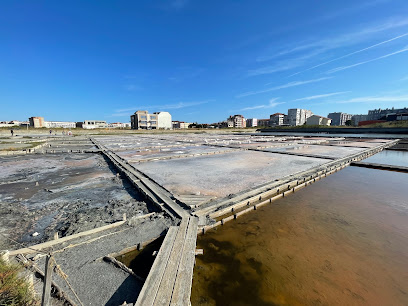
Sunset Aquapark Pomorie
Dive into the ultimate summer experience at Sunset Aquapark Pomorie, where thrilling water slides and family fun await in a beautiful coastal setting.
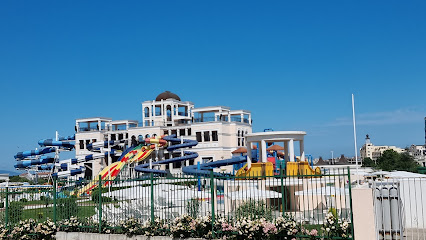
Thracian Tumulus
Explore the Thracian Tumulus in Pomorie, Bulgaria - a historical museum revealing the ancient secrets of the Thracian civilization in a stunning natural setting.
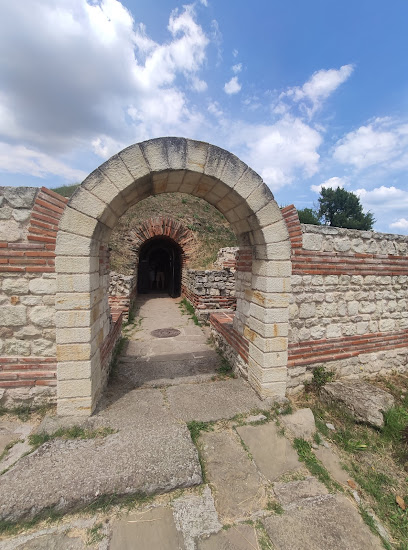
Historical Museum of Pomorie
Explore the rich history of Pomorie at the Historical Museum, home to fascinating artifacts and immersive exhibits that showcase the town's heritage.
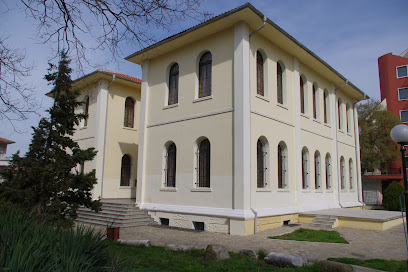
Поморие център
Explore Pomorie's heart: A blend of science, culture, and history awaits in this charming Bulgarian town center.
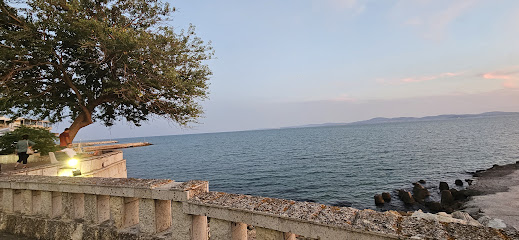
Lake Pomorie
Explore the stunning natural beauty and rich history of Lake Pomorie, a serene retreat on Bulgaria's picturesque Black Sea coast.
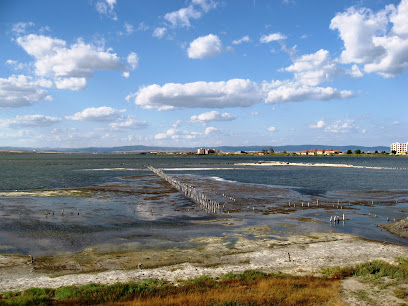
Pomorie Saltpans
Immerse yourself in the natural beauty and ecological richness of Pomorie Saltpans, a serene preserve perfect for relaxation and exploration.
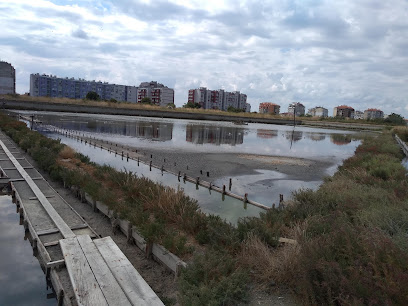
Old houses of Pomorie
Explore Pomorie's Old Houses for a glimpse into Bulgaria's rich architectural heritage and vibrant coastal culture.
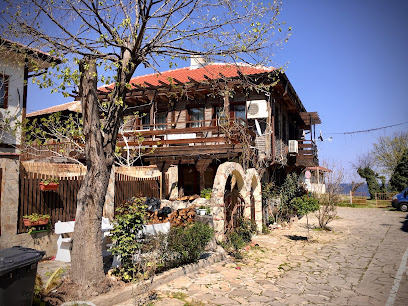
Plaża Pomorie
Discover Plaża Pomorie: A beautiful Black Sea beach offering relaxation, recreation, and a glimpse into Bulgaria's rich history.
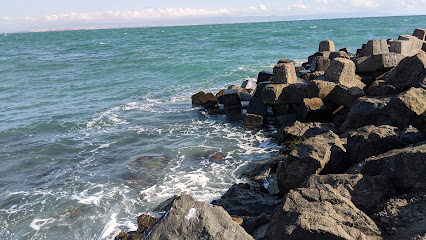
WW2 bunkers of Pomorie
Unearth the remnants of history at the WW2 bunkers in Pomorie, Bulgaria, and connect with the past along the beautiful Black Sea coast.
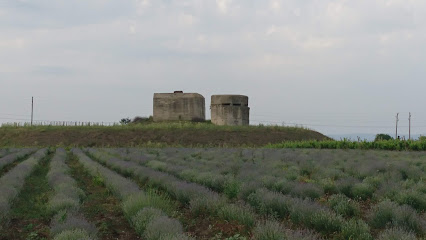
Unmissable attractions to see
Salt Museum
Explore the fascinating history of salt production at Pomorie's Salt Museum, a unique cultural gem on Bulgaria's Black Sea coast.
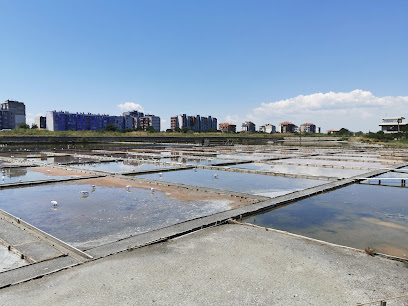
Sunset Aquapark Pomorie
Experience the ultimate fun at Sunset Aquapark Pomorie, where thrilling water attractions meet family-friendly relaxation in beautiful Bulgaria.
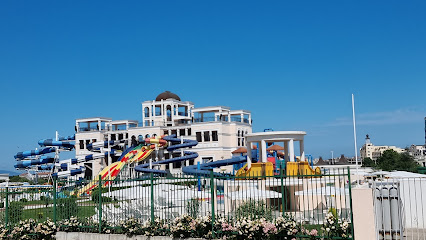
Historical Museum of Pomorie
Explore the captivating history of Pomorie through diverse artifacts at the Historical Museum, a treasure for history enthusiasts and curious travelers alike.
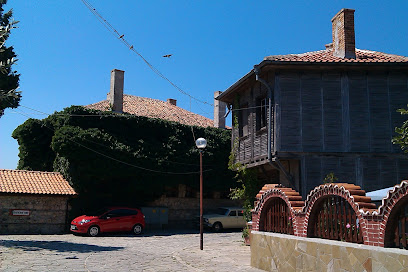
Pomorie Pier
Experience the breathtaking views and local culture at Pomorie Pier, a serene destination along Bulgaria's stunning Black Sea coast.
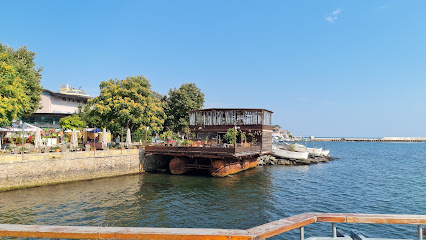
Поморие център
Explore the Pomorie Science Museum for an engaging journey into the world of science, innovation, and local culture in the heart of Bulgaria.
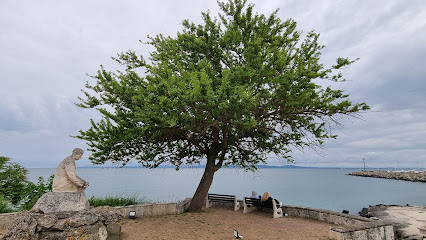
Pomorie sandbar
Escape to the serene Pomorie Sandbar: a Black Sea paradise offering natural beauty, diverse wildlife, and tranquil relaxation.
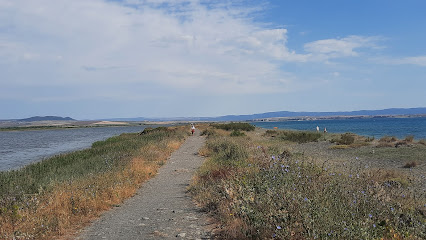
Pomorie Lake Visitor Center
Experience the serenity and biodiversity of Pomorie Lake at the Visitor Center, a must-visit for birdwatching and nature exploration.
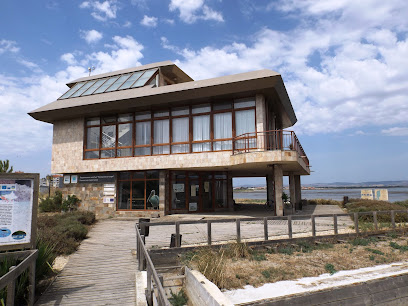
Pomorie Saltpans
Explore the stunning Pomorie Saltpans, a nature preserve rich in biodiversity and a haven for birdwatchers along Bulgaria's Black Sea coast.
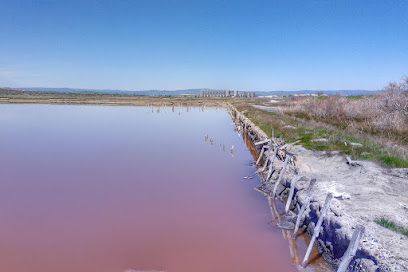
Plaża Pomorie
Discover the beauty and excitement of Plaža Pomorie, a stunning beach destination on the Bulgarian Black Sea coast, perfect for relaxation and adventure.
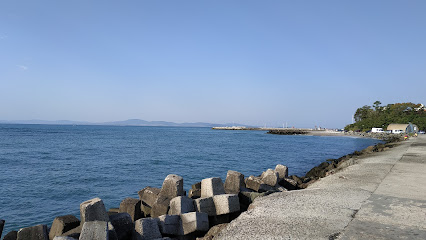
Плаж Помпата
Explore the stunning Pompat Beach in Pomorie, Bulgaria—where breathtaking hikes meet the beauty of the Black Sea coastline.
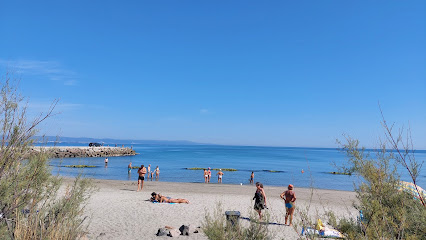
Love Bench
Experience romance and scenic beauty at the Love Bench in Pomorie, the perfect backdrop for unforgettable moments by the Black Sea.
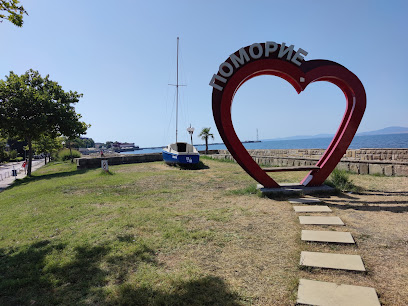
Статуя на Пейо Яворов
Explore the captivating Statue at Peio Yavorov in Pomorie, a cultural gem that celebrates Bulgarian literature and offers stunning seaside views.
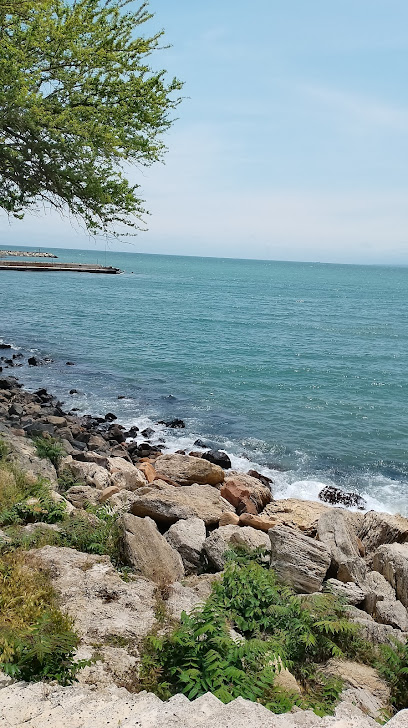
Pomorie Sign
Discover the vibrant Pomorie Sign, a must-visit attraction in Bulgaria that captures the essence of coastal beauty and cultural heritage.
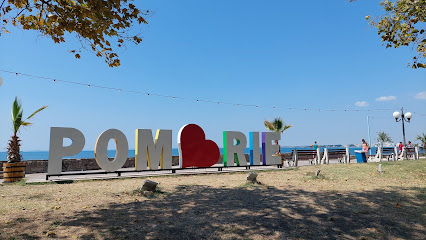
Pomorie Park
Discover the lush greenery and tranquility of Pomorie Park, perfect for relaxation and family outings in the heart of Bulgaria.
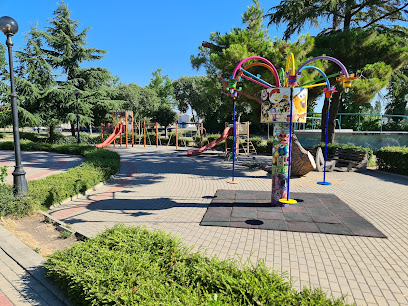
Fish Spa Relax Pomorie
Experience the tranquility of Fish Spa Relax Pomorie, where unique fish spa treatments meet a serene lounge atmosphere for ultimate relaxation.
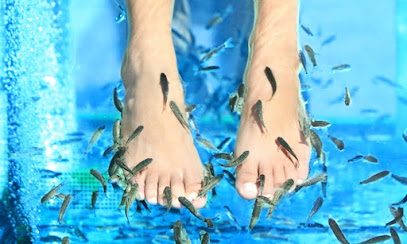
Essential places to dine
Restaurant and Club 24
Savor exquisite dishes at Restaurant and Club 24 in Pomorie - where local flavors meet international cuisine in an inviting atmosphere.
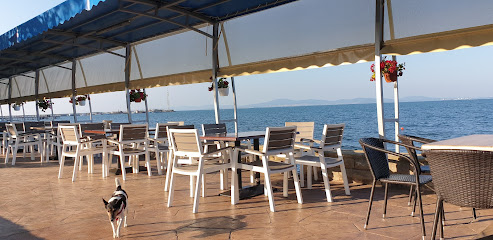
Ресторант Омар
Experience authentic Bulgarian cuisine at Ресторант Омар in Pomorie's charming Old Town—a bistro where tradition meets taste.
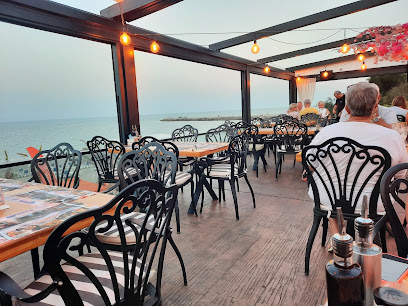
Traffic bar&dinner
Discover culinary bliss at Traffic Bar&Dinner in Pomorie - where local flavors meet family-friendly vibes.
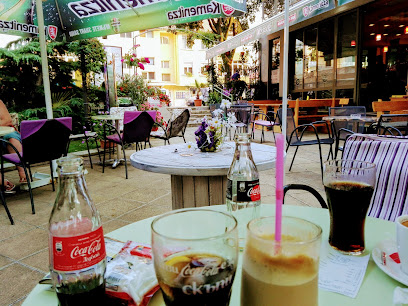
Sveti Nikola Bistro
Discover Sveti Nikola Bistro in Pomorie - a culinary gem serving authentic Bulgarian cuisine with warm hospitality.
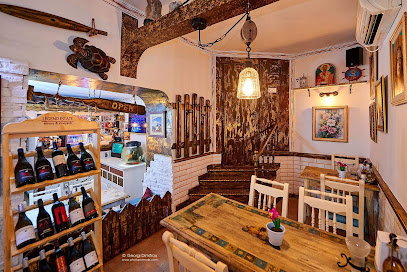
Koziyat Rog
Discover authentic Bulgarian seafood at Koziyat Rog in Pomorie's charming Old Town—where fresh flavors meet warm hospitality.
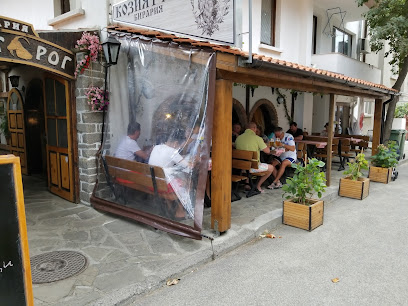
Laguna
Experience exquisite dining at Laguna in Pomorie, where fresh seafood meets stunning coastal views for an unforgettable culinary journey.
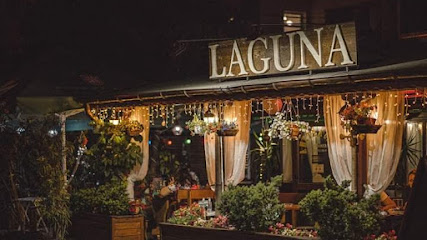
Koraba (Food & Sea)
Experience authentic Bulgarian seafood at Koraba in Pomorie – where fresh flavors meet warm hospitality.
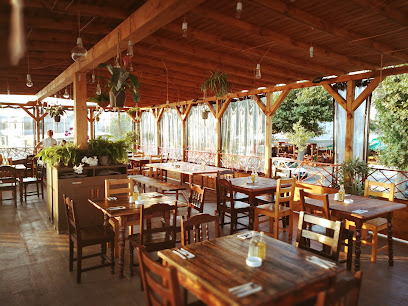
Pri Stoyko
Discover authentic Bulgarian cuisine and warm hospitality at Pri Stoyko in Pomorie - where every meal is a taste of tradition.
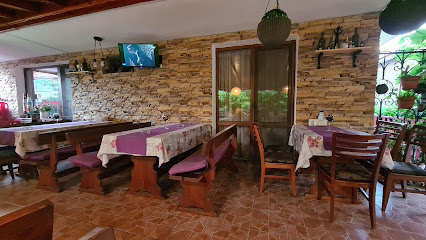
Barbut
Experience authentic Bulgarian cuisine at Barbut in Pomorie's enchanting Old Town - where flavor meets tradition.
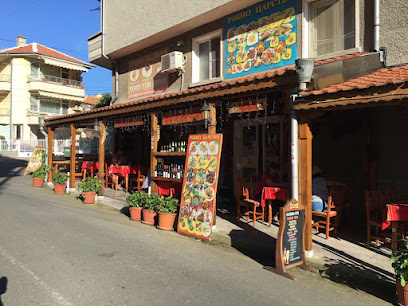
Rose Gardens Restaurant
Experience authentic Bulgarian and Mediterranean flavors at Rose Gardens Restaurant in Pomorie - where every meal is a celebration of taste.
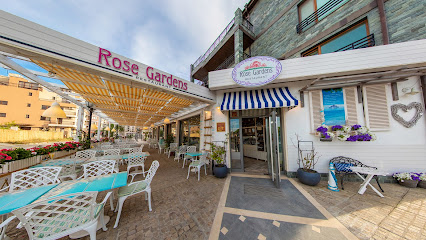
The Bar & Grill Restaurant by Saint George Hotel — Medical SPA, Pomorie
Discover the flavors of Pomorie at The Bar & Grill Restaurant by Saint George Hotel – where local ingredients meet culinary artistry.
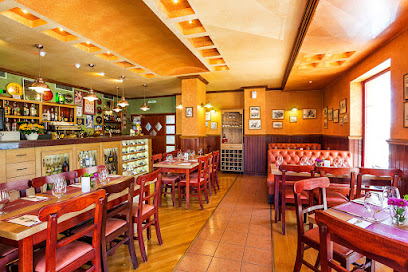
Stefani Restaurant
Experience the essence of Bulgarian gastronomy at Stefani Restaurant in Pomorie - where tradition meets flavor.
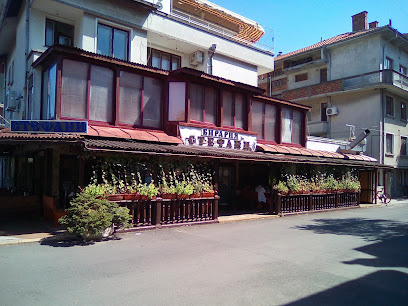
Ресторант Царевец
Experience authentic Bulgarian cuisine at Ресторант Царевец in Pomorie's charming Old Town - where every meal tells a story.
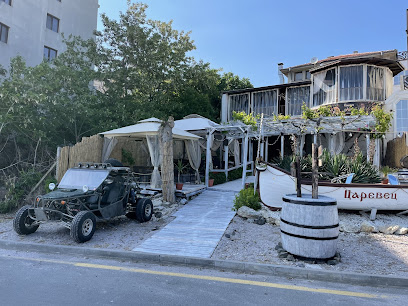
Нептун
Discover Нептун: A culinary gem in Pomorie’s Old Town serving authentic Bulgarian cuisine with fresh local ingredients.
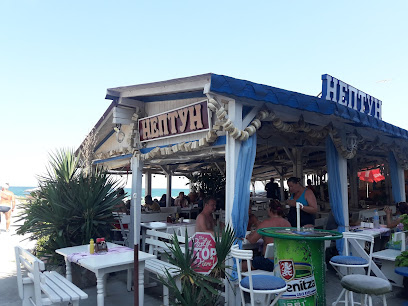
Лозарска Къща
Discover Лозарска Къща in Pomorie - where traditional Bulgarian flavors meet warm hospitality in a charming historical setting.
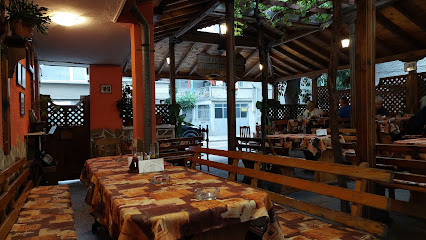
Markets, malls and hidden boutiques
Supermarket MEGA 1
Explore the vibrant MEGA 1 Supermarket in Pomorie, where local flavors meet international brands for an unforgettable shopping experience.
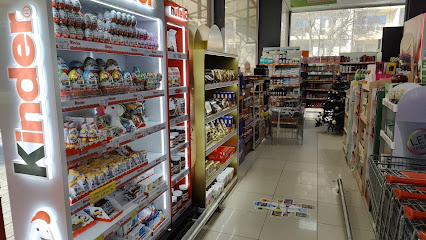
SL Market
Explore Pomorie with ease by shopping at SL Market, your local supermarket for fresh produce and local delicacies.
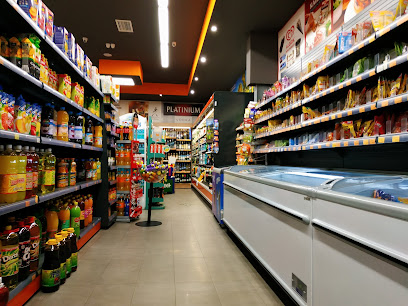
Ethno House
Explore Ethno House in Pomorie for a unique shopping experience filled with local crafts, delicious food, and a taste of Bulgarian culture.
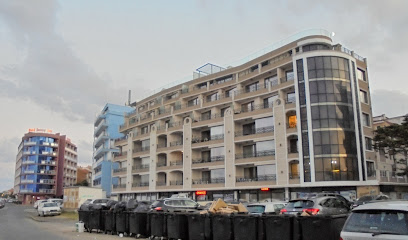
HELIOS furniture store - Pomorie
Discover exquisite furniture at HELIOS in Pomorie, your go-to destination for stylish sofas and outdoor pieces that redefine home comfort.
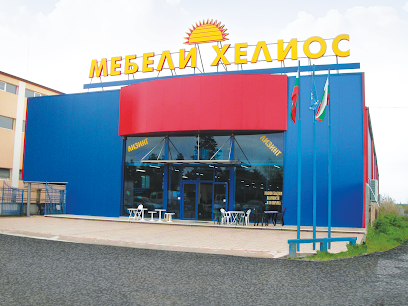
Съни Маркет - гр. Поморие
Discover the flavors of Bulgaria at Съни Маркет, Pomorie's vibrant supermarket offering local delicacies and fresh produce.
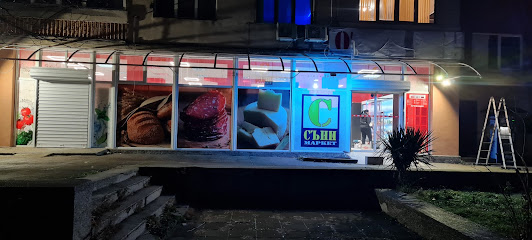
dm drogerie markt Bulgaria
Explore a wide range of health and beauty products at dm drogerie markt Bulgaria in Pomorie, where quality meets convenience.
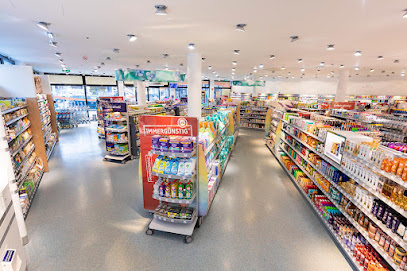
Black Sea Stars
Explore the beauty of Bulgaria at Black Sea Stars, a premier cosmetics store in Pomorie offering a wide range of local and international products.
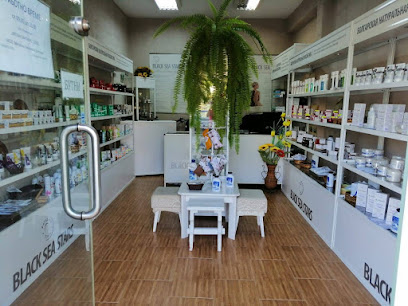
Khriki
Discover Khriki in Pomorie for authentic Bulgarian goods, unique crafts, and local delicacies that embody the spirit of Bulgaria.
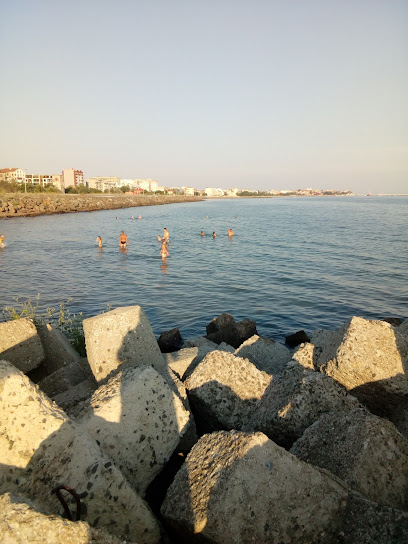
магазин Рени
Explore the best of local shopping at магазин Рени in Pomorie, where quality meets tradition in a welcoming atmosphere.

Pomorie
Experience the serene beauty and rich history of Pomorie, a coastal gem on the Black Sea, perfect for relaxation and cultural exploration.
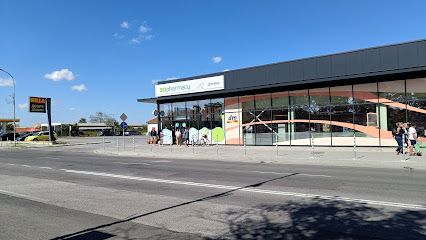
Metal Shop
Explore the Metal Shop in Pomorie for unique handcrafted gifts that embody Bulgaria's rich culture and artistry, perfect for souvenirs.
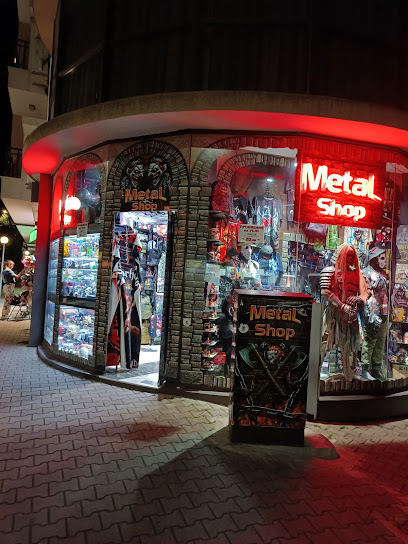
Flair Поморие
Explore Flair Pomorie for trendy clothing and local fashion, nestled in the vibrant heart of Pomorie, Bulgaria.
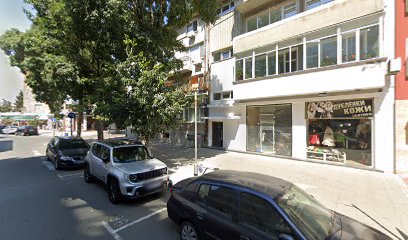
Pepco
Explore Pepco in Pomorie for stylish clothing and home essentials at unbeatable prices. A must-visit for every savvy shopper!
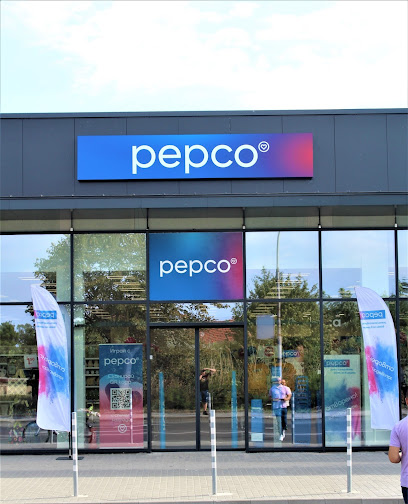
Toni fruits
Discover the charm of Toni Fruits in Pomorie, where health, freshness, and local flavors come together in a delightful shopping experience.
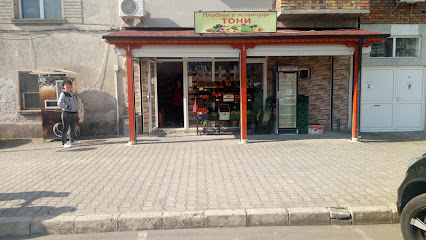
Магазин Ани
Discover authentic Bulgarian treasures at Магазин Ани in Pomorie, a charming store filled with local crafts and delicious treats.
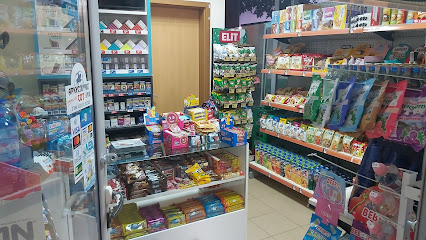
Essential bars & hidden hideouts
Omara atelier gastronomique
Experience the vibrant culinary scene at Omara Atelier Gastronomique in Pomorie, where tradition meets modernity in every dish and drink.
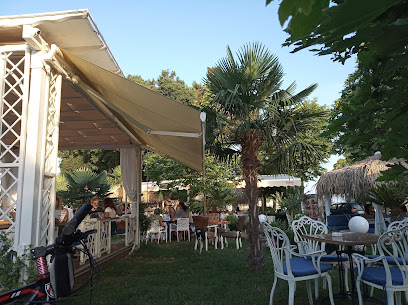
Traffic bar&dinner
Experience the delightful atmosphere and diverse menu at Traffic Bar & Dinner in Pomorie, perfect for families and food lovers alike.
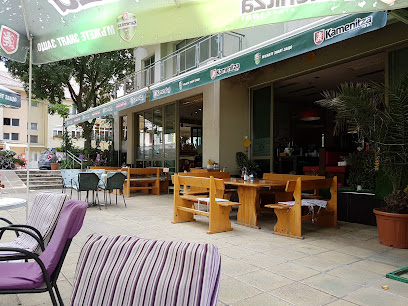
Sveti Nikola Bistro
Discover the culinary delights of Bulgaria at Sveti Nikola Bistro in the heart of Pomorie's Old Town, where every dish tells a story.
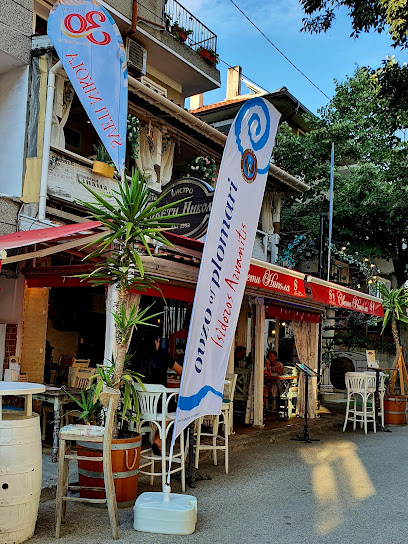
Koziyat Rog
Discover the taste of the Black Sea at Koziyat Rog, an exceptional fish restaurant in Pomorie, Bulgaria, blending fresh flavors with a cozy atmosphere.
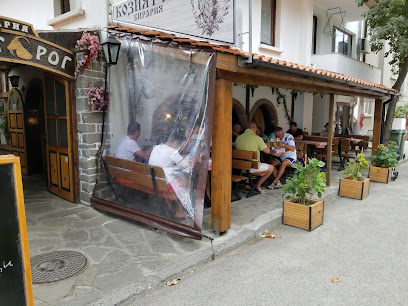
Bar Chaika
Discover Bar Chaika in Pomorie - a lively bar with stunning beach views, refreshing drinks, and a welcoming atmosphere perfect for tourists.
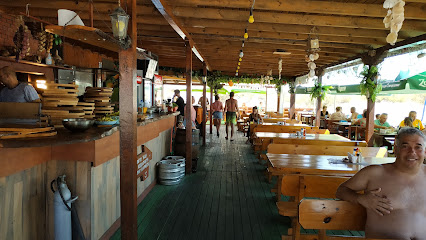
Barbut
Experience the authentic taste of Bulgaria at Barbut, a charming restaurant in Pomorie's Old Town, serving traditional dishes with fresh local ingredients.
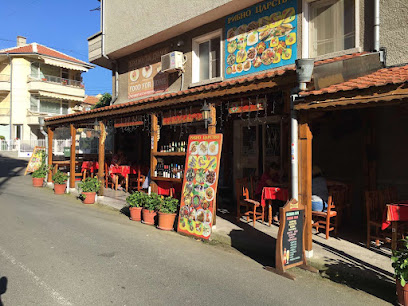
La Habana Beach Bar Pomorie
Experience the vibrant La Habana Beach Bar in Pomorie, where refreshing cocktails and stunning sea views create the perfect beach getaway.
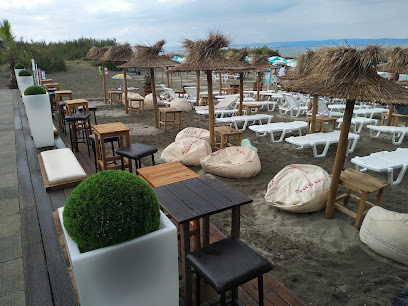
Rose Gardens Restaurant
Experience the best of Bulgarian and Mediterranean cuisine at Rose Gardens Restaurant in Pomorie, where fresh ingredients meet enchanting surroundings.
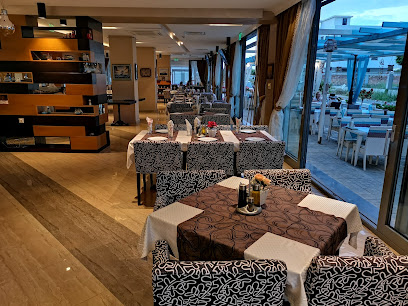
The Bar & Grill Restaurant by Saint George Hotel — Medical SPA, Pomorie
Discover culinary delights at The Bar & Grill Restaurant by Saint George Hotel, a seaside gem in Pomorie, serving fresh seafood and local favorites.
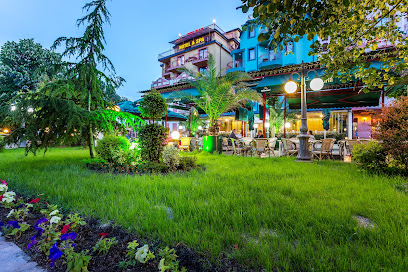
Бирария Халбите
Discover the heart of Bulgarian cuisine and craft beer at Бирария Халбите, a must-visit restaurant and beer hall in Pomorie.
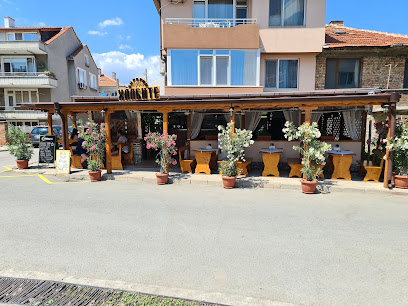
Scandalo bar
Experience the vibrant nightlife of Pomorie at Scandalo Bar, where delicious drinks and entertainment come together in a lively atmosphere.
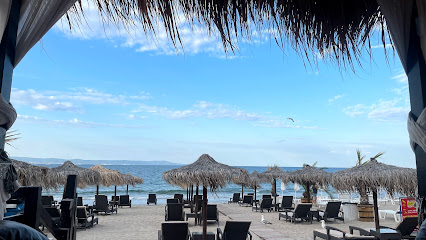
bar_BAMBUDDHA / Бамбуда
Experience an unforgettable dining adventure at Bambuddha in Pomorie, where flavorful dishes and a vibrant atmosphere await every visitor.
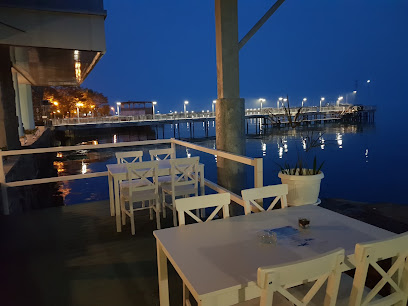
Бийч бар “При Американеца”
Discover Beach Bar 'At the American' in Pomorie, a vibrant seaside retreat perfect for relaxation, drinks, and unforgettable views.
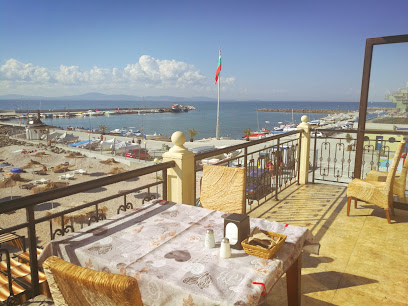
N-bar
Experience the vibrant atmosphere and delightful beverages at N-bar, Pomorie's ideal retreat for relaxation and socializing.
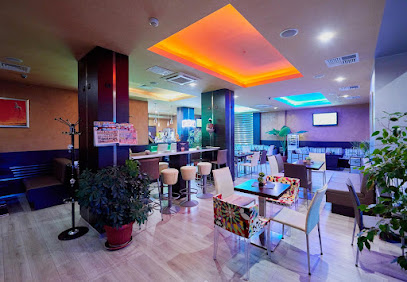
Local Phrases about Pomorie
-
- HelloЗдравей
[Zdravey] - GoodbyeДовиждане
[Dovizhdane] - YesДа
[Da] - NoНе
[Ne] - Please/You're welcomeМоля
[Molya] - Thank youБлагодаря
[Blagodarya] - Excuse me/SorryИзвинявай
[Izvinyavay] - How are you?Как си?
[Kak si?] - Fine. And you?Добре. А ти?
[Dobre. A ti?] - Do you speak English?Говориш ли английски?
[Govorish li angliyski?] - I don't understandНе разбирам
[Ne razbiram]
- HelloЗдравей
-
- I'd like to see the menu, pleaseБих искал да видя менюто, моля
[Bih iskal da vida menyuto, molya] - I don't eat meatНе ям месо
[Ne yam meso] - Cheers!На здраве!
[Na zdrave!] - I would like to pay, pleaseБих искал да платя, моля
[Bih iskal da platya, molya]
- I'd like to see the menu, pleaseБих искал да видя менюто, моля
-
- Help!Помощ!
[Pomosht!] - Go away!Изчезвай!
[Izchezvay!] - Call the Police!Обадете полицията!
[Obadete politsiyata!] - Call a doctor!Обадете лекар!
[Obadete lekar!] - I'm lostЗагубил съм се
[Zagubil sym se] - I'm illБолен съм
[Bolen sym]
- Help!Помощ!
-
- I'd like to buy...Бих искал да купя...
[Bih iskal da kupya...] - I'm just lookingСамо разглеждам
[Samo razglezhdam] - How much is it?Колко струва?
[Kolko struva?] - That's too expensiveТова е твърде скъпо
[Tova e tvyrde skapo] - Can you lower the price?Можете ли да понижите цената?
[Mozhete li da ponizhite tsenata?]
- I'd like to buy...Бих искал да купя...
-
- What time is it?Колко е часът?
[Kolko e chasat?] - It's one o'clockЕдин час е
[Edin chas e] - Half past (10)Половина след (10)
[Polovina sled (10)] - MorningСутрин
[Sutrin] - AfternoonСледобед
[Sledobed] - EveningВечер
[Vecher] - YesterdayВчера
[Vchera] - TodayДнес
[Dnes] - TomorrowУтре
[Utre] - 1Един
[Edin] - 2Два
[Dva] - 3Три
[Tri] - 4Четири
[Chetiri] - 5Пет
[Pet] - 6Шест
[Shest] - 7Седем
[Sedem] - 8Осем
[Osem] - 9Девет
[Devet] - 10Десет
[Deset]
- What time is it?Колко е часът?
-
- Where's a/the...?Къде е/има...
[Kade e/ima...] - What's the address?Какъв е адресът?
[Kakav e adresat?] - Can you show me (on the map)?Можете ли да ми покажете (на картата)?
[Mozhete li da mi pokazhete (na kartata)?] - When's the next (bus)?Кога е следващият (автобус)?
[Koga e sledvashtiyat (avtobus)?] - A ticket (to ....)Билет (до ....)
[Bilet (do ....)]
- Where's a/the...?Къде е/има...
History of Pomorie
-
Pomorie, originally known as Anchialos, was founded in the 4th century BC by the Ancient Greeks. Located on a rocky peninsula in the Black Sea, it quickly became an important center for commerce and trade. The settlement's strategic location made it a vital point for both maritime and overland trade routes in the region.
-
Under Roman rule, Anchialos flourished. The city was granted the status of a Roman colony and became a part of the province of Thrace. The Romans constructed significant infrastructure, including roads, aqueducts, and public buildings. The remnants of a large Roman amphitheater can still be seen today, underscoring the city's importance during this period.
-
In the medieval period, Anchialos was a contested site between the Byzantine Empire and the Bulgarian Empire. Its strategic location made it a focal point in various military campaigns. The Battle of Anchialos in 917 AD was a significant event, where the Bulgarian forces, led by Tsar Simeon the Great, defeated the Byzantines, solidifying Bulgarian control over the region.
-
Pomorie fell under Ottoman rule in the 14th century and remained part of the Ottoman Empire for nearly five centuries. During this time, the town saw the construction of numerous mosques and other Ottoman architectural features. The Salt Museum, which highlights the town's long history of salt production, has exhibits from this period.
-
With the Liberation of Bulgaria from Ottoman rule in 1878, Pomorie began to modernize rapidly. It became a popular resort destination, known for its natural beauty and therapeutic mud baths. The town continued to grow and develop through the 20th century, becoming a vibrant hub for tourism and culture.
-
Pomorie is celebrated for its rich cultural heritage. The town is home to several significant landmarks, including the Monastery of St. George, the Pomorie Lake, and the Old Pomorie Houses. Traditional festivals and customs, such as the annual Pomorie Wine Festival, reflect the town's deep-rooted traditions and community spirit.
Pomorie Essentials
-
Pomorie is located on the Black Sea coast of Bulgaria, approximately 20 kilometers north of Burgas and 120 kilometers south of Varna. The nearest international airport is Burgas Airport (BOJ), which is well-connected to major European cities. From Burgas Airport, you can take a taxi, shuttle bus, or rent a car to reach Pomorie. The journey usually takes around 20 minutes by road. Alternatively, you can take a bus from Sofia, the capital of Bulgaria, which typically takes around 6 hours.
-
Pomorie is a small town, making it easy to explore on foot. For longer distances, local buses and taxis are available. Buses connect Pomorie to surrounding cities like Burgas and Varna. Taxis are relatively inexpensive but ensure the meter is running or agree on a fare beforehand. Renting a car is a convenient option for exploring the region at your own pace. Bicycles are also available for rent and are a popular way to explore the town and its surroundings.
-
The official currency in Bulgaria is the Bulgarian Lev (BGN). Credit and debit cards are widely accepted in hotels, restaurants, and shops in Pomorie. However, it is advisable to carry some cash, especially for smaller establishments and markets. ATMs are readily available throughout the town. Currency exchange offices and banks offer currency exchange services, but it is recommended to exchange money at reputable locations to avoid unfavorable rates.
-
Pomorie is generally a safe destination for tourists. However, like any tourist destination, it is advisable to take standard precautions. Avoid walking alone at night in unfamiliar areas and keep an eye on your belongings in crowded places. There are no specific high-crime areas targeting tourists, but it is always best to stay vigilant and aware of your surroundings. Petty theft, such as pickpocketing, can occur, so keep your valuables secure.
-
In case of emergency, dial 112 for immediate assistance, which is the general emergency number in Bulgaria. Pomorie has a local police station and medical facilities, including hospitals and pharmacies. It is recommended to have travel insurance that covers medical emergencies. For minor health issues, pharmacies in Pomorie offer over-the-counter medications. English-speaking staff may be available in larger medical facilities.
-
Fashion: Do dress modestly when visiting religious sites. Avoid overly revealing clothing. Religion: Do respect local customs and traditions, especially in churches and monasteries. Public Transport: Do be respectful and give up your seat to elderly passengers. Don’t eat or drink on public transport. Greetings: Do greet people with a handshake. A friendly nod or 'Zdravei' (Hello) is appreciated. Eating & Drinking: Do try local delicacies and accept food offerings graciously. Don’t refuse hospitality, as it is considered impolite.
-
To experience Pomorie like a local, visit the local markets where you can buy fresh produce and traditional Bulgarian goods. Engage with locals, as they are often friendly and willing to share stories about the town's history and culture. Don’t miss the ancient Pomorie Thracian Tomb and the Pomorie Salt Museum. For a unique experience, take a mud bath in the Pomorie Lake, known for its therapeutic properties. Enjoy a walk along the picturesque sea promenade and try the local wines from the nearby vineyards.
Nearby Cities to Pomorie
-
Things To Do in Varna
-
Things To Do in Shumen
-
Things To Do in Stara Zagora
-
Things To Do in Haskovo
-
Things To Do in Gabrovo
-
Things To Do in Ruse
-
Things To Do in Constanta
-
Things To Do in Istanbul
-
Things To Do in Alexandroupoli
-
Things To Do in Bucharest
-
Things To Do in Pleven
-
Things To Do in Canakkale
-
Things To Do in Bursa
-
Things To Do in Kavala
-
Things To Do in Pitesti










